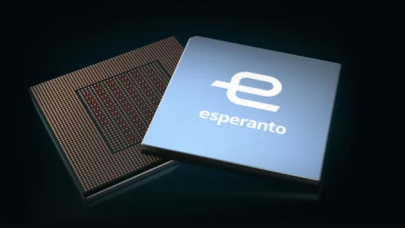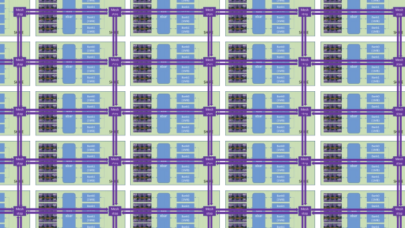
Google Announces Homegrown ARM-based CPUs
April 9, 2024
Google sprang a surprise at the ongoing Google Next Cloud conference by introducing its own ARM-based CPU called Axion, which will be offered to customers in it Read more…

Next Euro HPC Chip Coming Next Year Will Be in 2026 EU Exascale System
March 7, 2024
The next supercomputing chip for Europe's homegrown exascale supercomputer will come next year, according to an updated product roadmap. The 2025-bound Rhea- Read more…

China Deploys Massive RISC-V Server in Commercial Cloud
November 8, 2023
If the U.S. government intends to curb China's adoption of emerging RISC-V architecture to develop homegrown chips, it may be getting late. Last month, China Read more…

EU Grabs Arm for First Exaflops Supercomputer, x86 Misses Out
October 4, 2023
The configuration of Europe's first exascale supercomputer, Jupiter, has been finalized, and it is a win for Nvidia and a disappointment for x86 chip vendors In Read more…

Esperanto Merging HPC and ML in Upcoming RISC-V Processor
July 31, 2023
Esperanto Technologies has ambitious plans for its next RISC-V processor: to undo the accelerator model and build a chip that has both CPU and GPU capabilities Read more…

RISC-V Moving Toward Open Server Specification
July 24, 2023
A specification that could standardize the development of RISC-V server chips and systems is currently being drafted by RISC-V International, an organization th Read more…

Nvidia to Offer a ‘1 Exaflops’ AI Supercomputer with 256 Grace Hopper Superchips
May 28, 2023
We in HPC sometimes roll our eyes at the term “AI supercomputer,” but a new system from Nvidia might live up to the moniker: the DGX GH200 AI supercomputer. Read more…

Nvidia, HPE Announce Superchip-Powered ‘Isambard 3’ Supercomputer
May 21, 2023
Nvidia is ramping up deployment of its Superchips – amalgamated chips that include either two CPUs (the Grace CPU Superchip) or a CPU and a GPU (the Grace Hop Read more…

- Click Here for More Headlines

Whitepaper
Transforming Industrial and Automotive Manufacturing
In this era, expansion in digital infrastructure capacity is inevitable. Parallel to this, climate change consciousness is also rising, making sustainability a mandatory part of the organization’s functioning. As computing workloads such as AI and HPC continue to surge, so does the energy consumption, posing environmental woes. IT departments within organizations have a crucial role in combating this challenge. They can significantly drive sustainable practices by influencing newer technologies and process adoption that aid in mitigating the effects of climate change.
While buying more sustainable IT solutions is an option, partnering with IT solutions providers, such and Lenovo and Intel, who are committed to sustainability and aiding customers in executing sustainability strategies is likely to be more impactful.
Learn how Lenovo and Intel, through their partnership, are strongly positioned to address this need with their innovations driving energy efficiency and environmental stewardship.
Download Now
Sponsored by Lenovo
Whitepaper
How Direct Liquid Cooling Improves Data Center Energy Efficiency
Data centers are experiencing increasing power consumption, space constraints and cooling demands due to the unprecedented computing power required by today’s chips and servers. HVAC cooling systems consume approximately 40% of a data center’s electricity. These systems traditionally use air conditioning, air handling and fans to cool the data center facility and IT equipment, ultimately resulting in high energy consumption and high carbon emissions. Data centers are moving to direct liquid cooled (DLC) systems to improve cooling efficiency thus lowering their PUE, operating expenses (OPEX) and carbon footprint.
This paper describes how CoolIT Systems (CoolIT) meets the need for improved energy efficiency in data centers and includes case studies that show how CoolIT’s DLC solutions improve energy efficiency, increase rack density, lower OPEX, and enable sustainability programs. CoolIT is the global market and innovation leader in scalable DLC solutions for the world’s most demanding computing environments. CoolIT’s end-to-end solutions meet the rising demand in cooling and the rising demand for energy efficiency.
Download Now
Sponsored by CoolIT
Advanced Scale Career Development & Workforce Enhancement Center
Featured Advanced Scale Jobs:
HPCwire Resource Library
HPCwire Product Showcase
© 2024 HPCwire. All Rights Reserved. A Tabor Communications Publication
HPCwire is a registered trademark of Tabor Communications, Inc. Use of this site is governed by our Terms of Use and Privacy Policy.
Reproduction in whole or in part in any form or medium without express written permission of Tabor Communications, Inc. is prohibited.
























